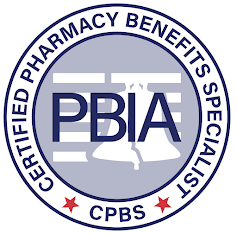PBM Contracting and Administration: What Are the Rules of the Road for Self-Insured Employers and other notes from around the interweb:
- PBM Contracting and Administration: What Are the Rules of the Road for Self-Insured Employers? Recently, PBMs have faced growing scrutiny, especially for their role in drug pricing and lack of transparency. Less attention has been given to the misuse of drug formularies—the foundation of drug benefits, listing medications covered by health insurance. While some argue formularies’ purpose has remained consistent over 30 years, others disagree. Initially, a pharmacy and therapeutics committee within a PBM, health plan, or other organization developed drug formularies. Clinicians and other experts on the committee determined the drug’s safety, efficacy, and unique clinical aspects. If the drug met their standards, they placed it on the formulary.
- Effort Underway to Improve Standards for REMS Adjudication. Specialty pharmacists’ Risk Evaluation and Mitigation Strategy (REMS) for high-risk medications is often cumbersome, requiring manual entries and a lengthy, multi-stakeholder process to confirm the drug’s benefits outweigh its risks. Ensuring REMS compliance is sometimes so laborious that a patient does not receive a needed medication. That’s because the authorization to dispense the drug expires after frequent back-and-forth between a pharmacist and REMS administrator. Such delays often are due to nonstandard processes that add complexity and time to an already loaded interaction, the speakers said. “I’ve seen pharmacists in tears over what they have to do to adjudicate a REMS [medication],” said Justin Wilson, BS, the global risk management, and REMS technology lead at Syneos Health, in Morrisville, N.C.
- Legislators urge DOJ to investigate PBMs for potential role in opioid epidemic. Recent reports, including confidential files and information from CVS Caremark, Express Scripts and Optum Rx, suggest the three largest PBMs colluded and conspired to steer patients towards Oxycontin in exchange for $400 million,” the legislators wrote. The allegations stem from an October article in Barron’s that details the findings. The outlet reported that these three firms collected $400 million in rebates and fees from Purdue Pharma over a year ending in late 2017. Barron’s noted that the PBMs kept most rebates instead of passing savings to consumers. The letter also criticizes major PBMs for their ties to health insurers, group purchasing organizations, pharmacies, and other healthcare businesses. Vertical consolidation in healthcare has been a central concern for policymakers looking to reform the PBM industry.
- The Inflation Reduction Act’s implications for employer-sponsored health plans. The Inflation Reduction Act (IRA) aims to lower prescription drug costs and enhance Medicare benefits. While these changes benefit Medicare recipients, they raise concerns for employer-sponsored health plans that are not part of government price negotiations. These plans could see cost increases due to price shifts, with premiums rising for employers and employees alike. The primary concern is that non-Medicare participants will bear these higher costs as pharmaceutical companies and health care providers raise prices to offset lost revenue. Historically, Medicare’s cost reductions have led to higher prices for employer-sponsored plans. When Medicare sets lower prices for services under Parts A (hospital) and B (outpatient), providers often shift costs to those with private insurance to maintain profitability. This trend is expected to continue under the IRA.
